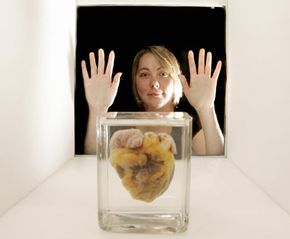Organ Donation
It is the brain-dead patient who is the source of viable organs for transplantation. If a family member knows that the patient wishes to be an organ donor, the best way to ensure that the patient's wishes are honored is for the family to approach the medical staff about it. This is why organ procurement organizations ask individuals who sign a donor card to inform their family of their wishes. When a family-initiated donation occurs, any and all obstacles in the donation process evaporate.
Brain death occurs in one out of every 200 hospital deaths (CDC study, 1986). It is a fairly rare event. These patients are evaluated for donation, with half being excluded because of other medical problems (cancers, infections, etc.). Of the half with medically acceptable organs, half of the families refuse donation, resulting in one organ donor out of 800 hospital deaths. To learn more about organ donation, see How Organ Transplants Work.
Advertisement
For more information on brain death and related topics, check out the links below.
Related HowStuffWorks Articles
More Informative Links
- Brain Death FAQ
- Family Guide to Neuromedicine: Brain Death
- Determining Brain Death
- Brain Injury and Brain Death Resources
- LifeCenter Northwest
About the Author
Leslie C. Olson is a surgical specialist at LifeCenter NW. LifeCenter NW is the Organ Procurement Organization based in Bellevue, Washington, serving Washington, Alaska, Northern Idaho & Montana.
